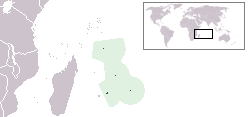 As I twittered today, there are a couple of new changes to daylight saving time in the world. You may already know about the changes to daylight saving time in Morocco as well as the new move to daylight saving time coming to Mauritius in October. Now, here are a few more changes coming in Brazil and Pakistan:
As I twittered today, there are a couple of new changes to daylight saving time in the world. You may already know about the changes to daylight saving time in Morocco as well as the new move to daylight saving time coming to Mauritius in October. Now, here are a few more changes coming in Brazil and Pakistan:
Brazil has published new dates for daylight saving time (known in the country as the início do Horário de Verão) for 2008-2009.
As confirmed on Brazil’s Ministry of Energy web site, the Electric Power Sector Monitoring Committee (aka the Comitê de Monitoramento do Setor Elétrico, or CMSE) set the new dates for DST, which will begin on October 19, 2008, and end on February 15, 2009.
See this link for more details (in Portuguese) or this link for the translation into English.
Pakistan will delay their "fall back" this year, as confirmed on the DAWN site here, Pakistan’s federal cabinet extended DST to Oct 31/November 1, which initially began on June 1 this year. This is a delay of the change that was supposed to happen on September 1: as such, clocks will "fall back" by one hour on November 1 rather than September 1. (This information has also been updated here: here on the faridi.net new site.) It appears that the information has not yet been posted to any government sites in Pakistan.
Important information to note at the moment on these changes: there is currently no hotfix available at this time to update Windows Operating Systems with the new 2008-2009 DST dates for Brazil, and the current version of KB 914387 or does not contain information about the new DST settings for Pakistan. More on remediation and mitigation in coming soon.
You should be aware of these changes and verify any meetings that occur in these countries. One challenge (as I have said a few times on this blog) is that when you install either DST hotfixes or cumulative updates, and governments make late-breaking changes to DST and TZ rules, appointments on your Office Outlook calendar could end up being be off by an hour for a few weeks. For example, say that you do business in Pakistan, and you have meetings scheduled between September 1 and November 1 (the delta period). Chances are that after applying the August 2008 DST & TZ update, KB951072, meetings that occur during this delta could be off by one hour.
<soapbox>
I have to recommend that in order to achieve more seamless transitions to new DST rules and time zones, governments should provide…
- official confirmations of planned changes to DST and time zones that are well publicized, and
- provide ample advance notice and concentrated efforts on promoting the change to the affected citizens is a requirement.
If you look at how Turkey considered a move to DST, and Australia approached their changes this year (this past April, 2008, as noted here), governments allow a reasonable amount of time between the announcement and the actual change. A step further, as noted on the Australia Eastern & Central 2008 Daylight Saving Changes page, the Aussies set up the official Australian Government Time web site to educate end users.
</soapbox>
Tags: Microsoft, Daylight Saving Time, Daylight Savings Time, RSS, DST, Mauritius, Morocco, Brazil, Pakistan; 3,690,000 (up from 3.4M a week ago); 2,490,000 (up from 900K a year ago); 1,472,886




